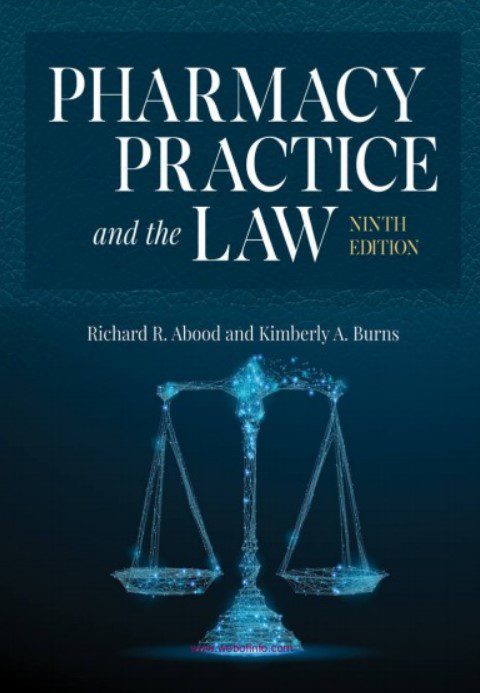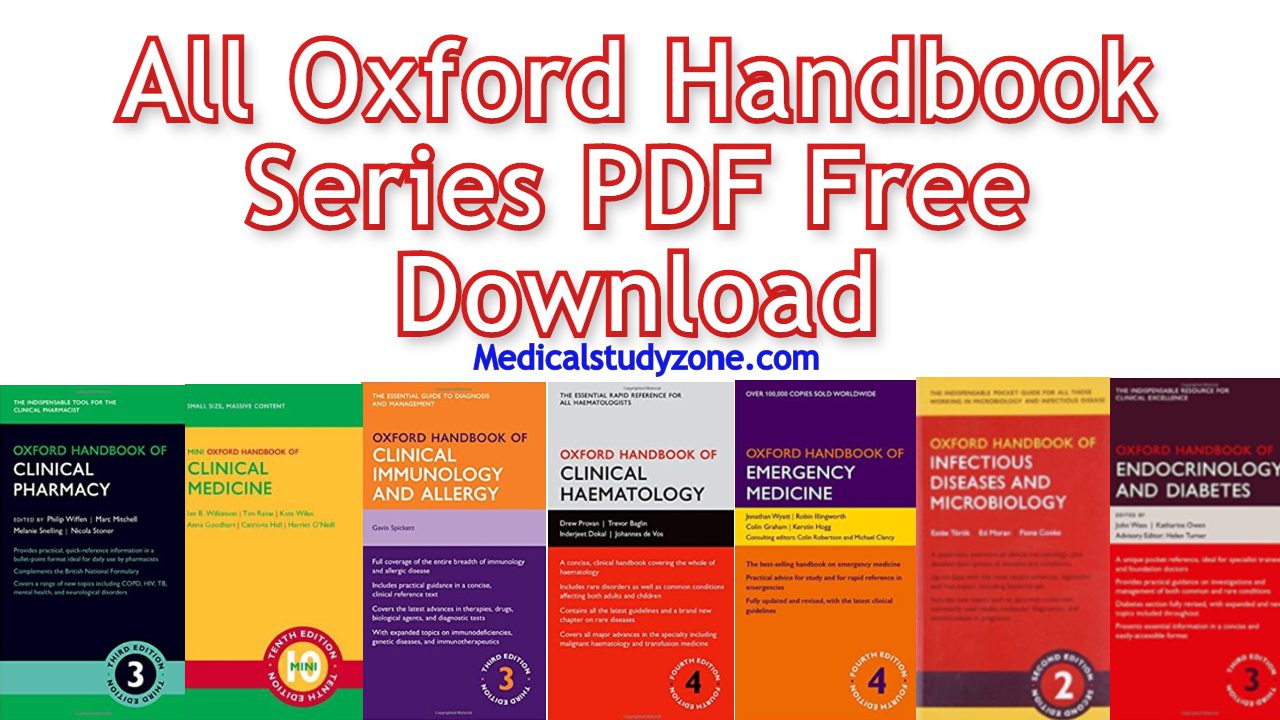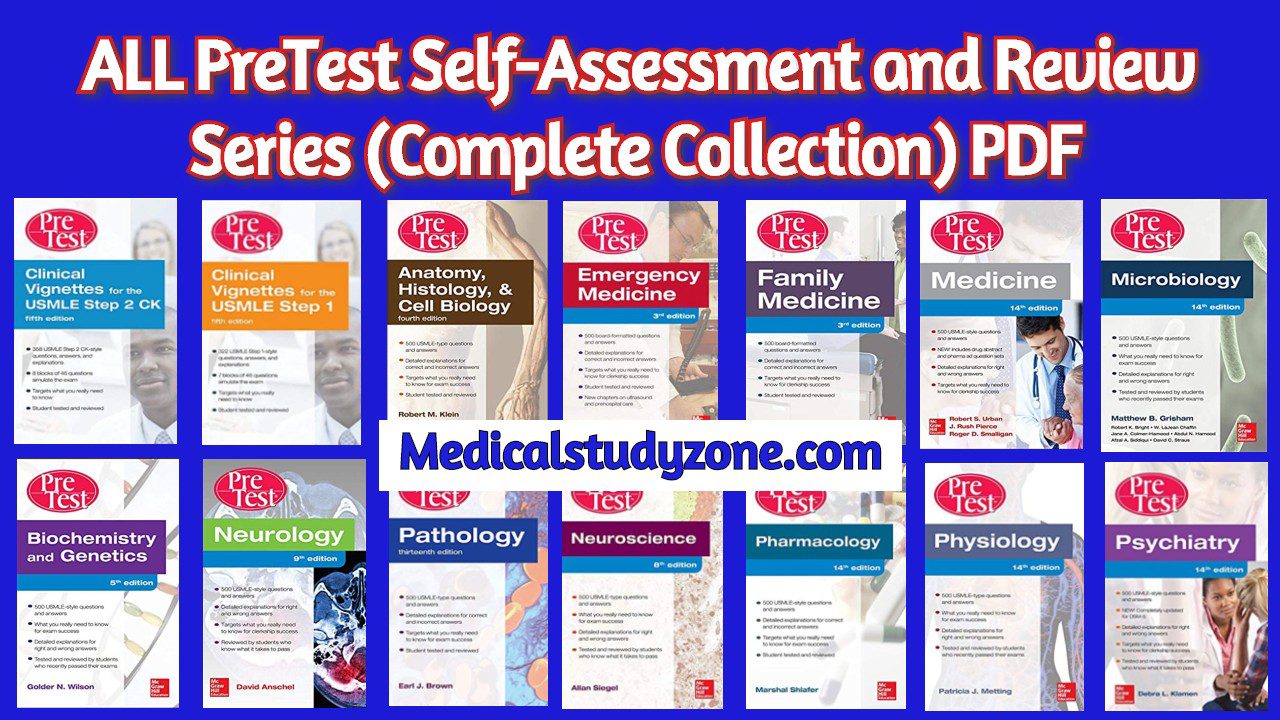In this blog post, we are going to share a free PDF download of Pharmacy Practice and the Law 9th Edition PDF using direct links. In order to ensure that user-safety is not compromised and you enjoy faster downloads, we have used trusted 3rd-party repository links that are not hosted on our website.
At Medicalstudyzone.com, we take user experience very seriously and thus always strive to improve. We hope that you people find our blog beneficial!
Now before that we move on to sharing the free PDF download of Pharmacy Practice and the Law 9th Edition PDF with you, here are a few important details regarding this book which you might be interested.

Overview
Pharmacy Practice and the Law 9th Edition PDF is one of the best book for quick review. It is very good book to study a day before your exam. It can also cover your viva questions and will help you to score very high.
You might also be interested in:
USP 43 NF 38 United States Pharmacopeia 2020 PDF Free Download
Switch : How to Change Things When change is hard PDF Free Download
Holland and Brews Manual of Obstetrics 4th Edition PDF Free Download
How to read an EEG PDF Book by Neville M. Jadeja PDF Free Download
Oxford Handbook of Neuroscience Nursing 2nd Edition PDF Free Download
Features of Pharmacy Practice and the Law 9th Edition PDF
Following are the features of Pharmacy Practice and the Law 9th Edition PDF:
Pharmacy practice and the law 9th edition by Richard R. Abood and Kimberly A. Burns now you can download PDF Free file on this page. Pharmacy practice and law have significant importance. National Association of Boards of Pharmacy (NABP) describes the definition of pharmacy practice in the following words, Pharmacy practices include Interpretation, diagnosis, and execution of medical orders. Supply of prescription medicines. Participate in the selection of drugs and medical devices. Medication management.
Pharmacy law means Pharmaceutical regulations govern the manufacture, sale, distribution, and use of pharmaceutical drugs. So these things are described very well by Richard R. Abood and Kimberly A. Burns in Pharmacy Practice and the Law 9th Edition pdf free.
Content Table
What is in the 9th Edition
Pharmacy Practice and the Law 9th Edition continued the effort of previous editions: to provide a resource that is useful for teaching the facts of pharmacy law, providing a degree of depth to support those facts, and stimulating critical thinking about issues in the field. The Ninth Edition retains the format of the Eighth Edition while incorporating several of the relevant changes that have recently occurred in pharmacy law. Please refer to “New to the Ninth Edition” for a more detailed description of the changes between the previous edition and this updated Ninth Edition.
Some of the changes and updates are the result of suggestions from faculty who use this book as an assigned text in their pharmacy law courses. We appreciate the valuable feedback from those using this book and we hope that we continue to receive this feedback. Our thanks to Professor Rajul Patel, PharmD, PhD, for reviewing and editing the Medicare Part D section in Chapter 6. Although we acknowledge with gratitude the input from many trusted colleagues, we accept full responsibility for any omissions or deficiencies anyone might find in this 9th edition pdf free download.
Importance of Pharmacy Practice and the Law
This text generally appeals to faculty who believe that a pharmacy law course should be much more than preparation for the board examination. The book reflects our position that a pharmacy law course should not be just about memorizing laws and regulations and learning the “rules of the game.” Rather, the course should prepare students to understand and critically analyze the law that governs both the profession and the products they distribute. Understanding requires that students know some history behind the laws, why they exist, how they affect pharmacy practice, and subsequently how to apply the law and how to analyze whether there is a better approach. Understanding pharmacy law is critical to understanding the profession. Pharmacy law reflects the history, social policy, and standards of practice that have created and shaped the profession into its current form. Our hope is that this book helps students to understand pharmacy law and, in the process, to develop an awareness and appreciation of the profession they otherwise might not have. This book contains a great deal of information. Faculty should use their judgment as to how much they expect students to learn. Some might even wish to supplement this text with current articles or additional cases on the various legal topics. The text contains several cites to the Federal Register, Code of Federal Regulations, statutes, public laws, and websites for those wishing to delve deeper into the many topics presented.
The Ninth Edition Pharmacy Practice and Law pdf free is beyond exam preparation, helping students understand and analyze the law that governs both the profession and the products they distribute. The ninth edition includes state-of-the-art federal, legal, regulatory, policy developments, as well as new developments in various medical/pharmaceutical programs. To facilitate discussion and critical thinking, each chapter includes challenging, open discussion questions, and revised cases. Critical issues are discussed in illegal, easy-to-understand language. Pharmacy Practice and Law, Ninth Edition, is the most comprehensive and attractive source of teaching the facts of federal pharmacy law and encouraging critical thinking and analysis on matters.
About Author
Richard Abood did his BS. Doctor of Pharmacy from the University of Nebraska at Lincoln and Juris Doctorate from the same institution. He has worked in both community and hospital pharmacy practices. He holds the title of Professor Emeritus in Pharmacy Practice at Pacific University, where he has been Professor of Pharmacy Practice for 23 years. Prior to that, he was Professor of Pharmacy Administration at the University of Wyoming and served for many years as Executive Director and Legal Adviser to the Wyoming Pharmaceutical Association. Professor Abboud has given numerous presentations in the fields of Pharmacy and Healthcare Law and authored several publications. In 2000, the American Society for Pharmacy Law presented him with the President’s Award for Outstanding Achievement in Pharmacy Law. In 2002, Pacific University awarded him the Uber Hard Teacher / Scholar Award, the highest award for outstanding performance in Pacific Joint Teaching and Scholarship. In 2013, Pacific presented him with the Pacific Order, outstanding teaching, scholarship and service. It is an honor for him. Professor Aboud is active in various government and national pharmacy organizations. He served as president and board member of the San Joaquin Pharmacists Association. And President and Board Member of the American Society for Pharmacy Law. Professor Abboud has regularly served as an advisor to law firms, state and federal governments, and pharmacy organizations on matters related to pharmacy law.
Kimberly Burns is a professor at Lake Erie College of the Osteopathic Medicine (LECOM) School of Pharmacy in Erie, PA. He got his BS. He holds a doctorate in pharmacy from the University of Pittsburgh School of Pharmacy (C-Load) and a doctorate from Dokson University Law School (C-Load). They are both licensed pharmacists and lawyers in Pennsylvania. Kim has been a professor at the LEOM School of Pharmacy since 2002. Her teaching responsibilities include Pharmacy Law and Ethics and an elective modern practice circulation site in the Erie County Department of Health, where she primarily contributes to local prescription drug use efforts. In addition to her academic career, she has practiced community pharmacy for over 15 years and has consulted on various legal issues related to pharmacy law. He has also written numerous papers and commentaries and made presentations at various local, state, and national levels on pharmacy law. Professor Burns has been active in several states and national pharmacy organizations, including the American Society of Pharmacy Law, where he has served as a board member and president. Professor Burns has been recognized with various awards for his leadership and contribution to community service, research, and teaching.
Table of Content
9th Edition of Pharmacy Practice and the Law Fre Download contains following content:-
- Chapter 1 The Law and the Legal System
- Chapter 2 Federal Regulation of Medications: Development, Production,
and Marketing - Chapter 3 Federal Regulation of Medications: Dispensing
- Chapter 4 The Closed System of Controlled Substance Distribution
- Chapter 5 Dispensing Controlled Substances
- Chapter 6 Federal Regulation of Pharmacy Practice
- Chapter 7 State Regulation of Pharmacy Practice
- Chapter 8 Pharmacist Malpractice Liability and Risk Management
- Strategies
- Glossary
- Index
The Law and the Legal System
Pharmacy laws describe for pharmacists the basic requirements of day-to-day practice. They also define the relationship pharmacists have with the public they serve. As health professionals, pharmacists are highly regulated because the slightest misstep in drug distribution or pharmaceutical care could cost a life. As custodians of the nation’s drug supply, pharmacists are subjected to extensive regulation because the products pharmacists control are held to the most exacting standards of any consumer product.
They study the law, because through the law society has described what is considered acceptable conduct for pharmacists, and pharmacists who fail to meet this level of acceptability will be held accountable for their failure. In most pharmacy practice situations, the question of “What is legal?” can be addressed by answering the question “What is best for the patient?” Pharmacists may not always know the law, but they usually will know what is best for the patient, and this knowledge is ordinarily sufficient. However, sometimes situations are more complicated than this simplistic approach would suggest.
Pharmacy laws have been drafted to describe the best general approach to specific pharmacy practice situations. They provide guidance for pharmacists by establishing rules that reflect societal value choices.
It is essential for pharmacists to know these rules and how to use them. Although pharmacy laws can describe basic practice requirements, they cannot substitute for good professional judgment. Sports metaphors are not always valuable in describing professional responsibilities, but it may be useful to think of pharmacists as being on an athletic team that follows the rules of a game as interpreted and applied by referees or umpires. Pharmacy law provides the rules, whereas government agencies interpret and apply them.
Within this framework, pharmacists are free to develop various strategies and exercise good judgment, just as athletes do. Some strategies and judgments lead to success and others to failure. It is not the role of law to dictate strategy and professional judgment. The law merely establishes the overall framework within which the strategy is developed. Following the law is necessary but not sufficient for professional success, just as following the rules is necessary but not sufficient for athletic success.
Federal Regulation of Medications: Development, Production, and Marketing
Pharmacy Practice and the Law 9th Edition 2019 also covers the following topics
- Identify the significant historical events that have shaped the current federal Food, Drug, and Cosmetic Act (FDCA).
- Describe the organization of the Food and Drug Administration (FDA).
- Distinguish among the definitions of food, drug, dietary supplement, cosmetic, device, label, and labeling.
- Recognize the prohibited acts, penalties, and enforcement mechanisms in the FDCA.
Identify the situations that may cause a drug to be adulterated or misbranded. - Differentiate FDCA requirements for prescription drugs from those for over-the-counter (OTC) drugs.
- Understand the issues and procedures pertaining to new drug approval. Describe why there are unapproved drugs on the market.
- Understand the regulatory system related to drugs intended to treat serious and life-threatening diseases.
- Distinguish biologics from other FDCA products. Describe the MedWatch program. Understand the process by which medical devices are regulated under the FDCA.
- Describe the legal requirements for manufacturers that advertise prescription drugs to healthcare professionals and consumers.
Download Pharmacy Practice and the Law 9th Edition PDF Free:
Now you can download Pharmacy Practice and the Law 9th Edition PDF from Medicalstudyzone.com below link:

Disclaimer:
This site complies with DMCA Digital Copyright Laws. Please bear in mind that we do not own copyrights to this book/software. We are not hosting any copyrighted contents on our servers, it’s a catalog of links that already found on the internet. Medicalstudyzone.com doesn’t have any material hosted on the server of this page, only links to books that are taken from other sites on the web are published and these links are unrelated to the book server. Moreover Medicalstudyzone.com server does not store any type of book, guide, software, or images. No illegal copies are made or any copyright © and / or copyright is damaged or infringed since all material is free on the internet. Check out our DMCA Policy. If you feel that we have violated your copyrights, then please contact us immediately. We’re sharing this with our audience ONLY for educational purpose and we highly encourage our visitors to purchase original licensed software/Books. If someone with copyrights wants us to remove this software/Book, please contact us. immediately.
You may send an email to [email protected] for all DMCA / Removal Requests.

![ALL MBBS Books PDF 2026 - [First Year to Final Year] Free Download ALL MBBS Books PDF 2022 - [First Year to Final Year] Free Download](https://medicalstudyzone.com/wp-content/uploads/2022/06/ALL-MBBS-Books-PDF-2022-First-Year-to-Final-Year-Free-Download.jpg)






Does the information one a Schedule II prescription such as address, etc have to be on the front of the prescription. Is it ok to be on an auxiliary label on the back of the prescription?